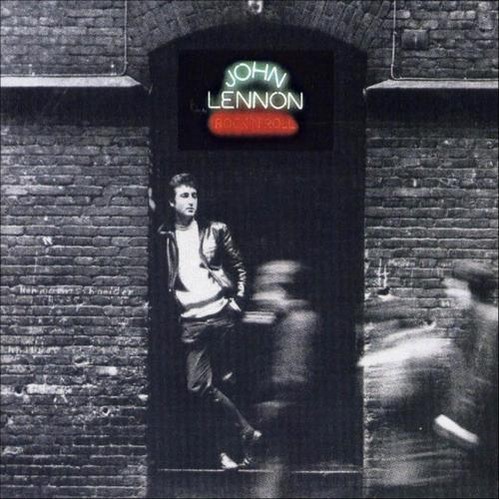
Rock 'n' Roll (1975)

1. Be-Bop-A-Lula
2. Stand By Me
3. Medley: Rip it Up/Ready Teddy
4. You Can't Catch me
5. Ain't That a Shame
6. Do You Wanna Dance?
7. Sweet Little Siteen
8. Slippin' and Slidin'
9. Peggy Sue
10.Medley: Bring it on Home to Me/
Send Me Some Lovin'
11.Boney Maronie
12.Ya Ya
13.Just Because
14.Angel Baby *
15.To Know Her is to Love Her *
16.Since My Baby Left Me *
17.Just Because (Reprise) *
* CD Bonus Track
Of all John Lennon’s solo albums, Rock ’n’ Roll may be the most quietly forgotten. Not dismissed—its quality has rarely been questioned—but rather sidelined in the larger arc of his post-Beatles work. It lacks the political fire of Some Time in New York City, the stark intimacy of Plastic Ono Band, or the pop immediacy of Imagine. And yet, in its own modest way, it may be one of the most revealing records Lennon ever made.
Initially conceived as part of a legal settlement—Lennon had been sued for lifting a line from Chuck Berry’s You Can’t Catch Me in Come Together—the album began as a contractual obligation. It morphed into something grander (and more chaotic) when Phil Spector was brought in to produce, which led to the predictable results: sessions spiraled into disarray, tapes vanished, and Lennon was left to reconstruct the album nearly a year later from the wreckage. That it emerged at all, and with this level of clarity, is something of a minor miracle.
There are no manifestos here, no causes, no confrontational ideology. This is Lennon at his most unadorned, paying tribute to the music that shaped him—pre-Beatles, pre-Yoko, pre-icon. Songs like Stand By Me and You Can’t Catch Me are performed with genuine affection, not irony. The arrangements are full-bodied but not nostalgic. This is not a museum piece—it’s a reinvention. Lennon doesn’t aim to replicate these songs; he filters them through the haze of mid-1970s studio polish and his own battle-worn vocal delivery. The result is both reverent and refreshed.
Stand By Me is the clear highlight, and arguably the definitive post-1950s version of the song. Lennon’s voice—raw, plaintive, unmistakably human—carries the weight of experience that makes the track land with new emotional depth. Elsewhere, Just Because closes the album with an offhanded charm, drifting into a spoken farewell that feels like the curtain call on an era.
The tracklist spans familiar territory—Be-Bop-A-Lula, Slippin’ and Slidin’, Peggy Sue—but rarely feels rote. There’s a looseness to the performances, but not sloppiness. Lennon sounds relaxed, almost grateful to be singing again without having to explain himself. This is not the sound of a man trying to shock or sermonize; it’s someone reconnecting with joy.
Later reissues added a handful of outtakes and unreleased session cuts, but their inclusion feels more archival than essential. The original album, even in its brevity, is self-contained and effective. What’s most striking, listening back, is how Rock ’n’ Roll manages to feel both unassuming and necessary—an album that reaffirms rather than reinvents, and in doing so, reminds listeners of Lennon’s essential gifts.
Rock ’n’ Roll doesn’t aim to change the world. It’s not trying to. That might be the point.
Go back to the main page
Go To Next Review